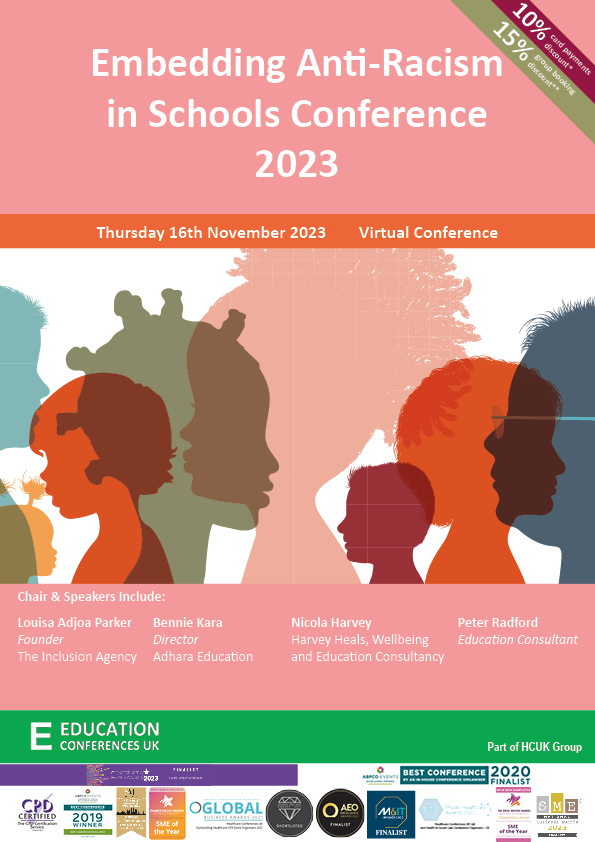Follow the conference on X #AntiRacismInSchools
“95% of young Black people have heard and witnessed racist language at school.”
Young and Black Report, YMCA
“An overwhelming 94% of teachers agreed that microaggression and anti-racism training should form part of mandatory teacher training.”
Racial microaggressions in schools: teachers’ perspectives and what it means for students, 2023
A recent government report highlighted that schools who work to diversify the curriculum and celebrate cultural diversity have more success in closing the ethnicity attainment gap. All schools must work towards embedding a culture of anti-racist values amongst staff, pupils, and the wider community. Central to that is creating an open and inclusive environment that facilitates conversation and discussion.
Join us for a crucial and transformative agenda designed to tackle the pressing issue of racism in schools, aimed at creating more inclusive and equitable learning environments.This session will provide educators and school leaders with the tools and insights needed to audit school cultures, develop anti-racist strategies, and comply with key legislation that addresses racial inequality in education.
Through interactive workshops and thought-provoking discussions, attendees will explore practical steps to confront racism, support the mental health of affected students and staff, and challenge unconscious bias in daily school practices. The agenda will also focus on strategies for addressing racial microaggressions and promoting positive behaviour in diverse classrooms. By the end of the day, participants will leave equipped with actionable solutions to foster safer, more inclusive schools where every student can thrive. Don’t miss this opportunity to take part in creating lasting change in your school community.
Who should attend?
Headteachers, Deputy Heads, Assistant Heads, Heads of Inclusion, Pastoral Leads and other members of the SLT.
This conference will enable you to:
Reflect on the challenges in the education sector surrounding racism
Identify gaps in your school’s policies and procedures and update them where necessary
Understand what an anti-racism action plan might look like in practice
Address racial inequalities that might exist in your school’s curriculum
Talk openly about appropriate language and the impact of language
Appropriately challenge racist behaviour in the classroom, as well as the wider school community
Use student voice to support you to make improvements
Assess how racism in school might be impacting your students and staff and how you can offer appropriate and meaningful support
Improve racial literacy of staff through outstanding training
Overhaul your recruitment procedures to help you to build a more diverse workforce









